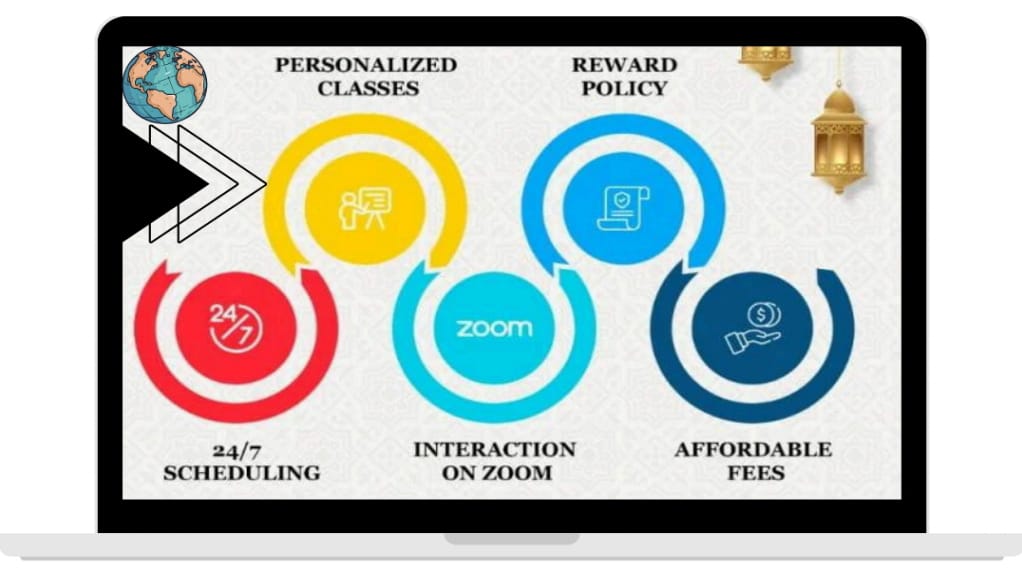1. Attend a Free Trial Class:
Sign up to attend a complimentary class. You have the
option to choose between two different teachers, either male or female, to see which teaching
style suits you best.
2. Receive a Customized Learning Plan:
After your trial class, you will receive a
learning plan tailored to your availability and learning goals. This plan will outline the daily class
duration and the number of classes per week that best fit your schedule.
3. Schedule Your Classes:
Decide on a convenient time for your classes and commit to
attending them punctually. Consistency is key to making progress in learning.
4. Complete Your Enrollment:
Once you're satisfied with your trial and the proposed
plan, you can pay the necessary fees to officially enroll in the course and start your learning
journey immediately.
This structured approach ensures that you can comfortably integrate the Noorani Qaida lessons
into your routine and begin learning at your own pace with the support needed for effective
progress.









